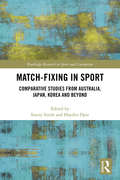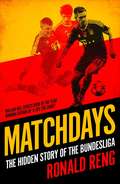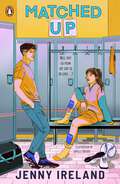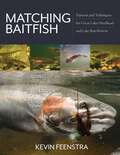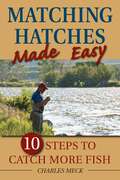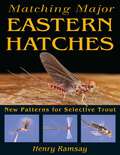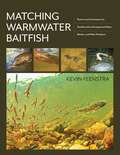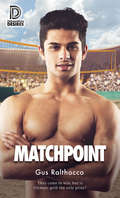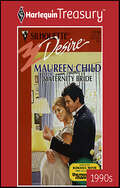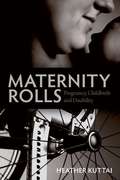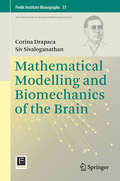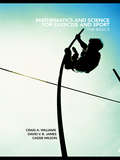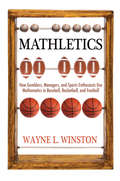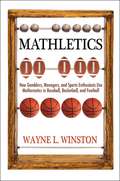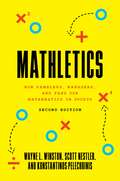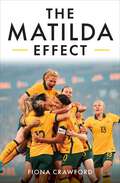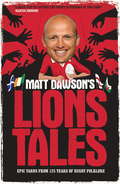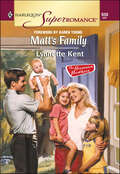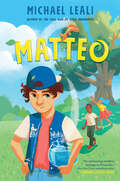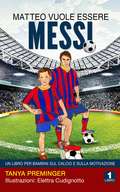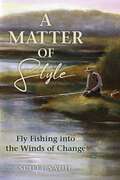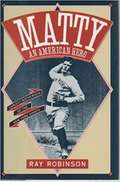- Table View
- List View
Match-Fixing in Sport: Comparative Studies from Australia, Japan, Korea and Beyond (Routledge Research in Sport and Corruption)
by Stacey Steele Hayden OpieMatch-fixing represents a greater potential threat to the integrity of sport than doping. It has been linked to organised crime, illegal drugs and money-laundering. Law enforcement and sporting authorities are struggling to establish legal and regulatory responses to this emerging threat, particularly in light of cross-border internet gambling. This book examines match-fixing and the legal responses to it in three key Asian sporting nations: Australia, Japan and Korea. It explores the significance of legal, regulatory and cultural differences, and draws lessons in terms of best practice and enforcement for legal and sporting authorities around the world. Including key insights from players, the betting industry, law enforcement and prosecution authorities, it discusses the strengths and weakness of current anti-corruption strategies in the three jurisdictions. Match-Fixing in Sport: Comparative Studies from Australia, Japan, Korea and Beyond offers important insights for all students and scholars with an interest in sport studies, law, criminology and Asian studies.
Matchdays
by Ronald RengThrough the life story of Heinz Hoher, player, coach, manager, scout and sports director, Ronald Reng tells the dramatic story of the rise of the Bundesliga over the last fifty years since it was founded in 1963. <P><P> During that period, football has grown from a game where a club's directors, puffing on cigars, would join the players in their dressing room at half time, to today's highly paid environment, where Red Bull are trying to break into one of the most successful sporting brands in the world. From a country struggling to cope with the Nazi legacy in the 1960s, Germany has emerged as an economic and sporting powerhouse of Europe. <P>Matchdays recreates the daily life of professional footballers from a different era, when match-fixing, doping and even guns all played their part in the training ground. Hoher himself spent two decades as a manager, once icing up the pitch at his ground to get a game cancelled, and making his living playing cards after he was sacked from the sport he loves. <P> Already a major bestseller and award-winning book in Germany, Matchdays reveals the truth behind the rise of German football and is sure to fascinate anyone interested in understanding a nation and its rise to the top of the sporting ladder.
Matched Up: A brand new sports romance from the author of The First Move
by Jenny IrelandThe third book from Branford Boase award nominated author, Jenny Ireland. This YA sport romance is perfect for fans of Jenny Han and Emily Henry!When Lexie sees Shane for the first time, she’s blown away. Not only by the way he plays football (although that is great), but by his looks, and how he’s not like the other boys. Best of all, he feels the same way about her. Electricity at first sight.But there's a problem.New in town, Shane has taken the position in Westing FC's starting 11 that Lexie’s brother, Niall, had set his sights on. Now, they must be each other's biggest secret. Shane's family situation is complicated, so there isn't much space for a girlfriend... or is there?At first, the sneaking around is exciting: after practice, meeting on the beach, hiding from Niall. But things are about to get complicated...Also by Jenny Ireland:THE FIRST MOVE"I LOVED IT!! Amazing disability representation. Incredible character development. Gripping, fast-paced plot. This is YA romance at its finest!!" – Goodreads readerTHE BOY NEXT DOOR"This book made me cry, laugh and also look at life slightly differently" – Goodreads reader
Matching Baitfish: Patterns and Techniques for Great Lakes Steelhead and Lake Run Browns
by Kevin FeenstraOne of the country&’s top guides and fly tiers covers how to effectively imitate the baitfish that the premier game fish of the Great Lakes feed on. Stunning photographs of the baitfish underwater, in their habitat, complement the detailed information on presenting the fly and other key tactics. Matching Baitfish includes guide tips for reading the water, strategies for swinging flies, and 20 guide flies and detailed recipes. Indispensable information for anglers in Michigan, Minnesota, Wisconsin, Illinois, Ohio, Pennsylvania, and New York, as well as Ontario, Canada.
Matching Hatches Made Easy
by Charles MeckHatch-matching veteran Charlie Meck shares his secrets for finding and fishing the hatches in ten simple lessons.
Matching Major Eastern Hatches
by Henry RamsayOver 400 detailed, step-by-step tying instructions in full color.
Matching Warmwater Baitfish: Patterns and Techniques for Smallmouth and Largemouth Bass, Muskie, and Other Predators
by Kevin FeenstraDiscover the secrets of warmwater fly fishing through the lens of one of America's premier guides and photographers. Master guide Kevin Feenstra reveals his proven techniques for targeting bass, musky, pike, and carp through stunning underwater photography and detailed fly patterns. As traditional trout waters face mounting pressure, more anglers are discovering the thrilling potential of warmwater species in their local waters. This comprehensive guide bridges that gap, offering both novice and experienced fly fishers the keys to success. Inside you'll find: 16+ proven fly patterns with step-by-step tying instructions Breathtaking underwater photography revealing exactly what fish see Expert strategies for reading water and presenting flies Specific techniques for targeting multiple species including largemouth, smallmouth, and shoal bass Drawing from over two decades of guiding experience on Michigan's mighty Muskegon River, Feenstra combines his expertise as a Scott Fly Rod Company pro staffer with his award-winning photography skills to create the definitive guide to warmwater fly fishing.
Matchpoint (Dreamspun Desires #101)
by Gus RalthoccoBeach volleyball player Caio Paraguassú is gearing up for the biggest event of his life at the Olympic Games in Paris. He’s taken part in the Games before, but this time he has his eye on the highest prize. A gold medal would go a long way toward healing the wounds left by Caio’s former lover and volleyball partner. Diego Torres left the sport he loved because of prejudice. Now he’s Caio’s friend, his partner in the sand, and a rising star in his own right. Together they can take on the world, or at least the world of beach volleyball. But the exhilaration of the Olympics brings out unexpected romantic feelings. Can Caio and Diego keep their focus and find the strength to fight for the podium and their love—even if it means facing an unexpected challenger on the court?
Mater (Disney / Pixar Cars)
by Frank BerriosSimple board book story about friendship between Mater, the rusty tow truck, and Lightning McQueen of Cars movie fame. Includes picture descriptions.
Maternity Bride
by Maureen ChildTHE BRIDE HAS A SERIOUS CASE OF...PREGNANCY!The stick was blue-and positive! Any way she looked at it, Denise Torrance's well-ordered life was about to turn upside down...and all because of an unexpected night with the man of her dreams! But when that very man insisted they marry for their child's sake, Denise could only hope Mike Ryan would be the groom of her dreams, too....There was no denying the passion that burned between them-her handsome new husband's desire for her hadn't cooled a bit. But dare Denise hope to win his heart?
Maternity Rolls: Pregnancy, Childbirth and Disability
by Heather KuttaiThe author, a paraplegic, tells about her own hunt for medical advice before getting pregnant--and then about the normal births of her two children--before widening the conversation to other disabled women and sympathetic members of the medical community.
Mathematical Modelling and Biomechanics of the Brain (Fields Institute Monographs #37)
by Corina Drapaca Siv SivaloganathanThis monograph aims to provide a rigorous yet accessible presentation of some fundamental concepts used in modeling brain mechanics and give a glimpse of the insights and advances that have arisen as a result of the nascent interaction of the mathematical and neurosurgical sciences. It begins with some historical perspective and a brief synopsis of the biomedical/biological manifestations of the clinical conditions/diseases considered. Each chapter proceeds with a discussion of the various mathematical models of the problems considered, starting with the simplest models and proceeding to more complex models where necessary. A detailed list of relevant references is provided at the end of each chapter. With the beginning research student in mind, the chapters have been crafted to be as self-contained as possible while addressing different clinical conditions and diseases. The book is intended as a brief introduction to both theoreticians and experimentalists interested in brain mechanics, with directions and guidance for further reading, for those who wish to pursue particular topics in greater depth. It can also be used as a complementary textbook in a graduate level course for neuroscientists and neuroengineers.
Mathematics and Science for Exercise and Sport: The Basics
by David James Craig Williams Cassie WilsonMathematics and Science for Sport and Exercise introduces students to the basic mathematical and scientific principles underpinning sport and exercise science. It is an invaluable course companion for students who have little prior experience of maths or science, and an ideal revision aid for higher level undergraduate students. The book explains the basic scientific principles that help us to understand sport, exercise and human movement, using a wide range of well-illustrated practical examples. Written by three leading sport scientists with many years experience teaching introductory courses, the book guides beginning students through those difficult to grasp areas of basic maths and science, and identifies the common problems and misconceptions that students often experience. It includes coverage of key areas such as: science of physical states – gas, liquid and solid science of biomechanics, motion and energy mathematical formulae, calculus, and differential equations statistics scientific report writing key concepts such as pressure, torque and velocity self-test features and highlighted key points throughout each chapter. Fully referenced, with guides to further reading, this book is an essential companion for all students on foundation or undergraduate level courses in sport and exercise science, kinesiology, and the human movement sciences.
Mathletics
by Wayne L. WinstonMathletics is a remarkably entertaining book that shows readers how to use simple mathematics to analyze a range of statistical and probability-related questions in professional baseball, basketball, and football, and in sports gambling. How does professional baseball evaluate hitters? Is a singles hitter like Wade Boggs more valuable than a power hitter like David Ortiz? Should NFL teams pass or run more often on first downs? Could professional basketball have used statistics to expose the crooked referee Tim Donaghy? Does money buy performance in professional sports? In Mathletics, Wayne Winston describes the mathematical methods that top coaches and managers use to evaluate players and improve team performance, and gives math enthusiasts the practical tools they need to enhance their understanding and enjoyment of their favorite sports--and maybe even gain the outside edge to winning bets. Mathletics blends fun math problems with sports stories of actual games, teams, and players, along with personal anecdotes from Winston's work as a sports consultant. Winston uses easy-to-read tables and illustrations to illuminate the techniques and ideas he presents, and all the necessary math concepts--such as arithmetic, basic statistics and probability, and Monte Carlo simulations--are fully explained in the examples. After reading Mathletics, you will understand why baseball teams should almost never bunt, why football overtime systems are unfair, why points, rebounds, and assists aren't enough to determine who's the NBA's best player--and much, much more. In a new epilogue, Winston discusses the stats and numerical analysis behind some recent sporting events, such as how the Dallas Mavericks used analytics to become the 2011 NBA champions.
Mathletics
by Wayne WinstonMathleticsis a remarkably entertaining book that shows readers how to use simple mathematics to analyze a range of statistical and probability-related questions in professional baseball, basketball, and football, and in sports gambling. How does professional baseball evaluate hitters? Is a singles hitter like Wade Boggs more valuable than a power hitter like David Ortiz? Should NFL teams pass or run more often on first downs? Could professional basketball have used statistics to expose the crooked referee Tim Donaghy? Does money buy performance in professional sports?InMathletics, Wayne Winston describes the mathematical methods that top coaches and managers use to evaluate players and improve team performance, and gives math enthusiasts the practical tools they need to enhance their understanding and enjoyment of their favorite sports--and maybe even gain the outside edge to winning bets. Mathleticsblends fun math problems with sports stories of actual games, teams, and players, along with personal anecdotes from Winston's work as a sports consultant. Winston uses easy-to-read tables and illustrations to illuminate the techniques and ideas he presents, and all the necessary math concepts--such as arithmetic, basic statistics and probability, and Monte Carlo simulations--are fully explained in the examples. After readingMathletics, you will understand why baseball teams should almost never bunt, why football overtime systems are unfair, why points, rebounds, and assists aren't enough to determine who's the NBA's best player--and much, much more.
Mathletics: How Gamblers, Managers, and Fans Use Mathematics in Sports, Second Edition
by Wayne L. Winston Konstantinos Pelechrinis Scott NestlerHow to use math to improve performance and predict outcomes in professional sportsMathletics reveals the mathematical methods top coaches and managers use to evaluate players and improve team performance, and gives math enthusiasts the practical skills they need to enhance their understanding and enjoyment of their favorite sports—and maybe even gain the outside edge to winning bets. This second edition features new data, new players and teams, and new chapters on soccer, e-sports, golf, volleyball, gambling Calcuttas, analysis of camera data, Bayesian inference, ridge regression, and other statistical techniques. After reading Mathletics, you will understand why baseball teams should almost never bunt; why football overtime systems are unfair; why points, rebounds, and assists aren’t enough to determine who’s the NBA’s best player; and more.
Matilda Effect
by Fiona CrawfordThe Matilda Effect is the exciting, inspiring, sometimes infuriating and always colourful story of the Australian women's football (soccer) team, the Matildas, and their ultimately successful struggle, alongside other women from around the world, to compete in World Cup football. From the 1980s, when women had to pay to participate in the pilot Women's World Cup, to 2019, when the principle of equal pay for women players was finally accepted amid surging interest in their game, the voices of key figures emerge. A book at once about and not about sport, and with a throughline of human rights and gender equality history, The Matilda Effect takes the reader out of the stands and onto the pitch, into the team's hotels, buses, boardrooms and social media universe, where positive change has been wrestled into being.
Matt Dawson's Lions Tales
by Matt DawsonMatt Dawson's Lions Tales gives rugby fans a satisfying dose of wonderful Lions anecdotes, epic stories of triumph and despair, of camaraderie and controversy, and stirring examples of that special bond that only competing in the white heat of battle, halfway round the world, against the mighty All Blacks, Wallabies and Springboks, can engender.Lions Tales is peppered with insight and laugh-out-loud moments, dredged from the memory banks of Dawson's own time in the iconic red shirt, and also from his keen interest in the Lions' remarkable 125-year traditions.
Matt Dawson's Lions Tales
by Matt DawsonMatt Dawson's Lions Tales gives rugby fans a satisfying dose of wonderful Lions anecdotes, epic stories of triumph and despair, of camaraderie and controversy, and stirring examples of that special bond that only competing in the white heat of battle, halfway round the world, against the mighty All Blacks, Wallabies and Springboks, can engender.Lions Tales is peppered with insight and laugh-out-loud moments, dredged from the memory banks of Dawson's own time in the iconic red shirt, and also from his keen interest in the Lions' remarkable 125-year traditions.
Matt's Family (The Brennan Brothers)
by Lynnette KentShe loved one Brennan-but she married the other...Kristen had known the Brennan boys forever. She'd loved Luke as a friend, but she'd been in love with Matt for as long as she could remember. Then, just before her eighteenth birthday, the army posted Matt to Africa. Months later the dreaded telegram arrived: Missing, presumed dead.Young, scared and pregnant, Kristen turned to her friend Luke. Together they agreed that getting married would be best for her baby. Slowly Luke and Kristen turned their marriage of convenience into a real one, and a second baby was born.Then five years later, Matt Brennan-the man she'd never stopped loving-came home...Matt's Family is the second book in Lynnette Kent's compelling THE BRENNAN BROTHERS family saga.
Matteo
by Michael LealiEleven-year-old Matteo has never felt like one of the other boys. He’s sure that will change when he joins the Blue Whales, the baseball team his dad once played for. This is his chance to grow into a son his father can be proud of. <P><P> And grow Matteo does, but not the way he expected. Instead, he starts sprouting leaves and finding bark all over his skin. Alarmed, Matteo starts digging for the truth about what’s happening to him—and finds that all clues lead back to the oak tree at the center of town, which Creeksiders have always believed is a little bit magic. As his parents start noticing something is wrong, the truth gets harder to hide—and Matteo makes some surprising discoveries about himself, his hometown, and his entire family tree. <P><P> From Michael Leali, author of The Civil War of Amos Abernathy, this earnest deconstruction of what it means to be a “real boy” is full of humor and heart, and a surefire home run for readers of Mark Oshiro, Anne Ursu, and Katherine Applegate.
Matteo vuole essere Messi: Un libro per bambini sul calcio e sulla motivazione (Matteo vuole essere Messi #1)
by Tanya PremingerVincitore del premio MOM'S CHOICE AWARDS 2018. Matteo è un bambino di 8 anni che ama il calcio e ha una grande immaginazione. Vorrebbe essere come il suo idolo Lionel Messi. Affronta le sue paure, combatte le difficoltà a scuola e ce la mette tutta per realizzare il suo sogno: diventare il calciatore più forte del mondo. Un libro sul calcio coinvolgente e stimolante, che trasmette l’importanza del non arrendersi mai davanti alle difficoltà. Accompagnato dalle bellissime illustrazioni di Elettra Cudignotto. Questo libro è destinato ai bambini tra i 6 e i 10 anni. Ideale per i lettori principianti o per essere letto dai genitori come storia della buonanotte. Il libro fa parte di una serie, ma può essere letto senza problemi come storia a sé.
Matter of Style: Fly Fishing into the Winds of Change
by Scott SadilLeaving behind a job as a public school teacher, acclaimed writer Scott Sadil (rhymes with cradle)began building Tamalita, a lug-rigged beach yawl suitable for exploring the remote tidewaters of Baja California&’s Magdalena Bay. Before he could finish planking his new boat, however, Sadil received an email from Gray&’s Sporting Journal, for the past fifty years America&’s preeminent hunting and fishing magazine. Gray&’s needed a writer of Sadil&’s stature to take over the duties of their angling editor. Would he be interested in applying for the job?A Matter of Style: Flyfishing into the Winds of Change brings together Sadil&’s columns and feature stories written over his first half decade with Gray&’s. The author of six previous books, including fiction and nonfiction, Sadil has received wide-reaching praise as both a stylist and humorist, a literary writer whose essays and short stories have been compared favorably with the works of Thomas McGuane, Ted Leeson, Charley Waterman, and other writers of traditional and contemporary outdoor literature.For readers of Gray&’s, here&’s the chance to revisit and share all of Scott Sadil&’s work as the journal&’s angling editor for the past five years. For anyone else who enjoys the sport of flyfishing, or simply reading about freshwater and saltwater angling adventures from points near and far, A Matter of Style: Flyfishing into the Winds of Change should rise immediately to the top of your must-read book list, an opportunity to pay witness to the spirited highs and lows of flyfishing in our volatile world today.
Matty, An American Hero: Christy Mathewson of the New York Giants
by Ray RobinsonWhen all-time pitching great Christy Mathewson died of tuberculosis in 1925 at the age of 45, it touched off a wave of national mourning that remains without precedent for an American athlete. The World Series was underway, and the game the day after Mathewson's death took on the trappings of a state funeral: officials slowly lowered the flag to half-mast, each ballplayer wore a black armband, and fans joined together in a chorus of "Nearer My God to Thee." Newspaper editorials recalled Mathewson's glorious career with the New York Giants, but also emphasized his unstinting good sportsmanship and voluntary service in World War I. The pitcher known to one and all as "Matty" or "Big Six" was as beloved for the strength of character he brought to the national pastime, as for his stunning 373 career victories. "I do not expect to see his like again," said his best friend and former manager, John McGraw. "But I do know that the example he set and the imprint he left on the sport that he loved and honored will remain long after I am gone."
Matzah Ball: A Passover Story
by Mindy Avra PortnoyAaron can't pass up a chance to attend an Orioles game at Camden Yards, even though it's during Passover and he'll have to bring special food, which he winds up sharing with all of his friends.
